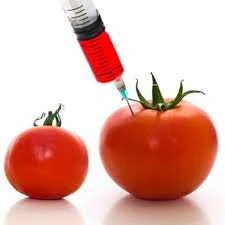The Nigerian Academy of Science (NAS) has declared that genetically-modified foods are safe for consumption for now.This was against the warning by the National Biosafety Management Agency (NBMA) to the public to be wary of the products that are on sale in some stores. It said none of the products had been approved for local consumption. NAS, during a media roundtable on GMOs in Nigeria at its office in Lagos, said the country was ready for the products and that they were safe for both production and beneficial to the nation based on carefully-documented evidence from developed countries.
The academy noted that the technology, though new with expected fears and concerns, would be useful to the country because of its potential to boost the nation’s agriculture, which would resolve food insecurity.
The outgoing president of NAS, Prof. Oyewale Tomori, said though the technology seems fresh, but nothing is new with it, as the academy, in accordance with its mandate, has examined available evidence from researches in advanced countries.
According to him, the academy’s stance was informed by existing evidence from the industrialised countries, which have carefully followed laid-down principles for such activities, “but in Nigeria, the system has just been put in place, and we need to prepare for the future.”
Tomori, who noted that there were no forecasts of long-term effect, stressed: “We cannot predict the future and what is going to happen with these GMOs, but so far so good, there are no problem from where they have been used; but that does not mean that it is going to be good forever. We must be on the alert to know when changes are coming up.”
Besides, a professor of plant breeding and crop biotechnology with the Department of Genetic and Biotechnology, University of Calabar, Effiom Ene-Obong, who said there were no scientific evidence that agree with the raised health concerns of GMOs worldwide, “as they are safe for both production and consumption.”
He noted that though genetically-modified foods are not commercially produced in Nigeria yet, three quarters of countries in the world are keyed into them and as a new technology, fears being entertained are expected, “but rather the benefits outweigh the worries”
Ene-Obong added: “Before these products are sent into the market, lots of trials and investigations are done by so many agencies, such as the Academy of Sciences Worldwide, United Nations Educational, Scientific and Cultural Organisation (UNESCO), World Health Organisation (WHO), to monitor and make sure they are safe for human consumption and they have recommended.”



























